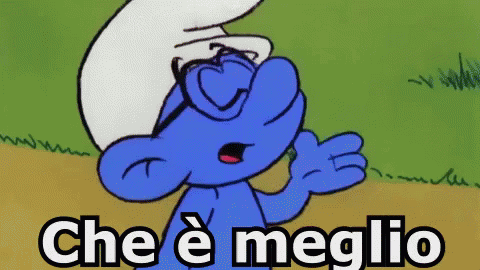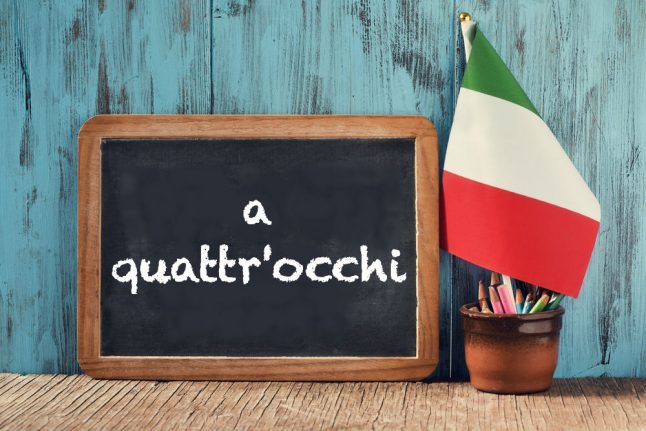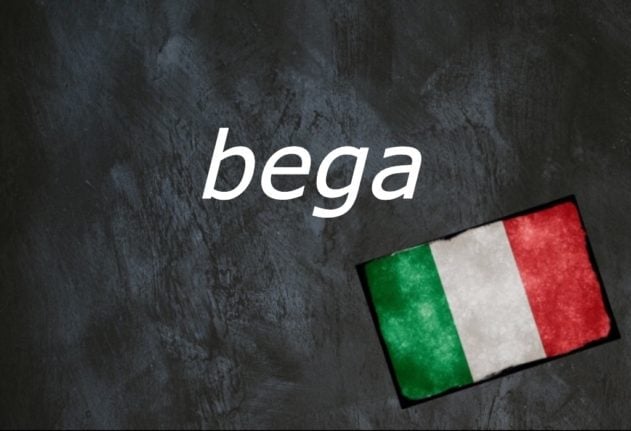Psst. Over here. Don't mention anything, but today's phrase is for when you need a little bit of discretion.
A quattr'occhi means, literally, 'between four eyes' – in other words, 'between the two of us'.
It implies a meeting both in person and in private, making it 'face-to-face' and 'one-on-one' at the same time.
Devo parlarti a quattr’occhi.
I need to speak to you in private.
Ero convinto sarebbe stato un colloquio a quattr'occhi.
I thought this was going to be a private conversation.
Ti dispiace se faccio una chiacchierata a quattr'occhi con il mio ragazzo?
Do you mind if I have a little tête-à-tête with my boyfriend?
It's not to be confused with quattrocchi, an irreverent term – 'four eyes' – for someone who wears glasses (and also the name of a bird and type of fish, apparently).
Quattrocchi also happens to be what Brainy Smurf was called in the Italian version of the cartoon (I Puffi), for reasons you can probably see for yourself.

Do you have a favourite Italian word you'd like us to feature? If so, please email our editor Jessica Phelan with your suggestion.



 Please whitelist us to continue reading.
Please whitelist us to continue reading.
Member comments